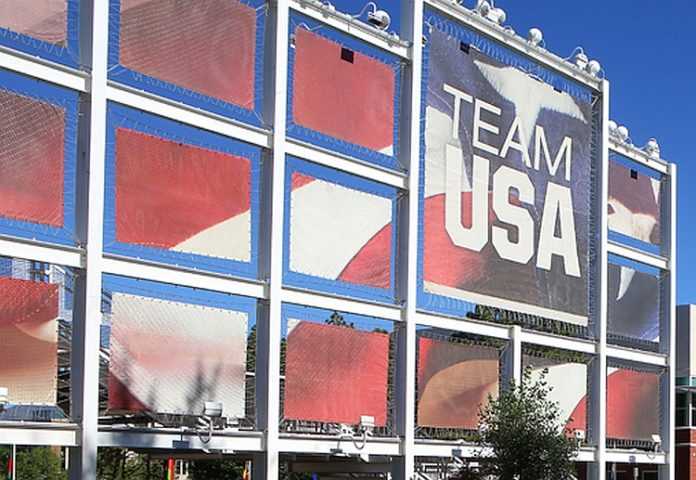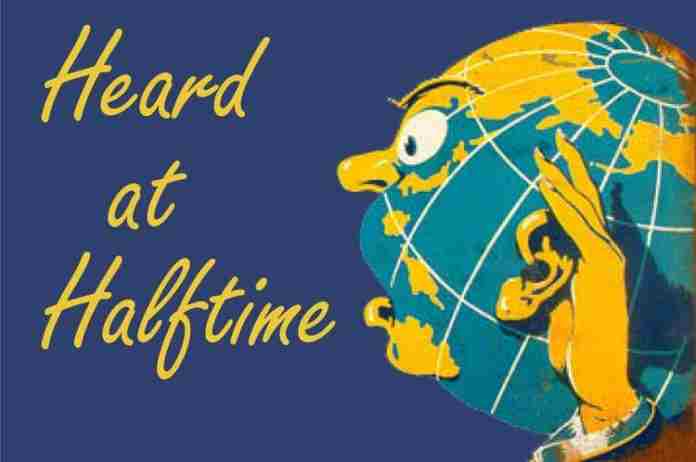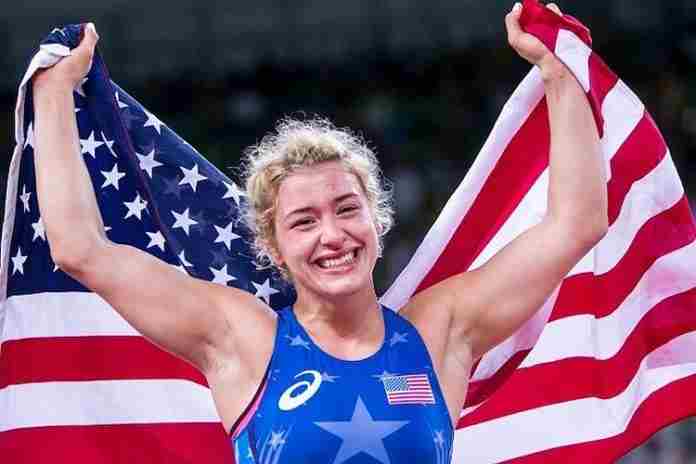The latest news, notes and quotes from the worldwide Five-Ring Circus:
● Games of the XXXII Olympiad: Tokyo 2020 ● Thursday’s implosion of the American sports leagues and most of collegiate sports in view of the coronavirus threat will be a day long remembered. It will also change, in some significant ways, the composition of the United States Olympic Team for the Tokyo Games this summer.
Consider the impact of the actions taken by, especially, the National Basketball Association (NBA) and the National Collegiate Athletic Association (NCAA):
(1) The NBA suspended its season as of 12 March, with a review to be undertaken in 30 days. Most teams still have 17-18 games left on their 82-game regular-season schedule before going into the playoffs. Even playing a few more regular-season games as a warm-up for the playoffs, the season could stretch out considerably, even into August.
That would eliminate players on playoff teams from participating in the Tokyo Games, not only for the U.S., but for many other teams whose stars play now in the NBA, such as reigning Most Valuable Player Giannis Antetokounmpo of Greece (Milwaukee Bucks).
(2) The NCAA not only canceled its men’s and women’s basketball championships, but all of its winter and spring sports championships. This includes, among others, wrestling, swimming & diving and indoor and outdoor track & field. The indoor track nationals had been set to start Friday (13th) in Albuquerque, New Mexico.
Further, all of the major conferences – Atlantic Coast, Big 10, Big XII, Pac-12 and SEC – have suspended competitions at least until the end of the month. The Big 10 canceled all “organized team activities” until at least 6 April and the SEC suspended “all athletics activities” through at least 15 April. Within the Pac-12, UCLA has suspended all “team activities” through at least 29 March and USC has suspended all practices and competitions “until further notice.”
This places the top collegiate athletes in the devastating position of not being able to be coached or receive any support services such as athletic training and weight room access for at least a couple of weeks and maybe longer. There is the follow-up question of access to the sports facilities at some campuses where post-collegiate athletes – from many countries – continue to work with their coaches (who may or may not be affiliated with the university) in training for the U.S. Trials in their sport, or the Games in Tokyo if already selected.
There can be little doubt that if the universities are shut down for any significant period after 1 April that the performances of college athletes will be impacted and the look of the U.S. teams, especially in track, swimming and wrestling, will be different.
The first test of this was going to be the USA Wrestling Olympic Trials, scheduled for 4-5 April at Penn State University, but the event was postponed today (13th). The major American trials:
● Diving: 14-21 June in Indianapolis
● Athletics: 19-28 June in Eugene
● Swimming: 21-28 June in Omaha
● Artistic Gymnastics: 25-28 June in St. Louis
The question on everyone’s mind is how long will the crisis last? Events in China, where the coronavirus epidemic began, are shedding some light on this question.
The first reports of the virus came on 31 December of 2019, with the spread of the virus outside China conformed by the middle of January. The Chinese Basketball Association – which does not have a team in Wuhan or the Hubei Province – suspended its season on 30 January, but is now calling players back. An 11 March memo asked players to return to their clubs to prepare for a re-start to their season on 2 April.
The CBA teams are apparently quite serious about this, “threatening lifetime bans for players who refuse to return and loss of league agency licenses for 2-3 years for their representation.”
However, let’s assume for a moment – and it’s a big assumption – that the virus is under some form of control in China. If so, then the “quarantine” period from 30 January to a projected re-start of the season in April is 8-9 weeks. If we apply this as a loose timetable to the U.S. situation, then activities might be forecast to resume sometime in middle-to-late May.
If so, that’s enough time to get an Olympic Team selected, even if the people on it might not be the same as if the pandemic hadn’t happened. The Chinese Basketball Association example will also be instructive to the Tokyo Metropolitan Government and the International Olympic Committee on how to judge the future of the Games in Tokyo for the summer. Right now, the news of a CBA re-start would point to Tokyo Games being held as scheduled.
¶
The Olympic Flame was lit in ancient Olympia on Thursday (12th) with no public spectators present. However, there were significant crowds that gathered to watch the relay that followed, despite requests from the Greek government for people to avoid coming out to see the event.
Thus, the Hellenic Olympic Committee canceled the remainder of the relay in Greece, citing “this was the best possible decision in order to contribute to the containment of the virus.” The flame will be transferred to the Japanese organizers as scheduled on 19 March in Athens, again with no spectators allowed.
● Athletics ● “Council acknowledges the new RusAF Board’s decision to admit the charges and apologise for the effect of RusAF’s misconduct on the athletics community. In light of that admission and apology, Council will not call a special Congress meeting of all member federations to consider the expulsion of RusAF from membership of World Athletics at this time.”
That’s from the World Athletics summary of its decision to give the Russian Athletics Federation (RusAF) essentially one more chance to observe the anti-doping and other rules of the worldwide governing body, or be expelled. The World Athletics Council, meeting in Monaco on Thursday, decided:
(1) To fine the Russian federation $10 million, of which $5 million must be paid by 1 July, or RusAF will be suspended. The remaining $5 million is essentially a probationary-period fine that must be paid if Russia “commits a further breach of the Anti-Doping Rules … or fails to make meaningful progress toward satisfying the reinstatement conditions fixed by Council.”
(2) The program of “Authorized Neutral Athletes” under which some Russian stars had been competing since the end of 2015, was reinstated with a limit of 10 total entries for the 2020 Olympic Games, 2020 European Championships, the World Half Marathon Champs and the World Race Walking Team Championships.
(3) The “Authorized Neutral Athlete” program will be reviewed at the end of 2020 and a decision will be made as to whether it will be continued for 2021.
(4) A new program for Russian reinstatement will be proposed to the World Athletics Congress in Tokyo, requiring the federation to institute a plan “to ingrain … a culture of zero tolerance for doping,” to be monitored by the existing World Athletics Russia Taskforce.
The key was the letter of “admission and apology” sent by new RusAF chief Evgeniy Yurchenko on 3 March. Short of that, Russia would likely have been on the road to expulsion.
This is good news for Russian stars such as high jumper Mariya Lasitskene, vaulter Anzhelika Sidorova and hurdler Sergey Shubenkov, all medal contenders for Tokyo. But changing the culture in Russian athletics will neither be an easy or short process.
● Football ● In the aftermath of the court filing by the U.S. Soccer Federation which clumsily tried to define differences between the men’s and women’s National teams as part as its defense to the discrimination lawsuit filed by the women’s team, USSF President Carlos Cordeiro resigned on Thursday.
He was replaced by USSF Vice President Cindy Parlow Cone, herself a member of the U.S. Women’s National Team from 1996-2004 and was a member of the 1999 FIFA Women’s World Cup winners and a two-time Olympic gold medalist. She was elected in 2019 to fill out Cordeiro’s term when he was elected as President and will be President until February of 2021, when an election for the remaining year of Cordeiro’s term will be held.























